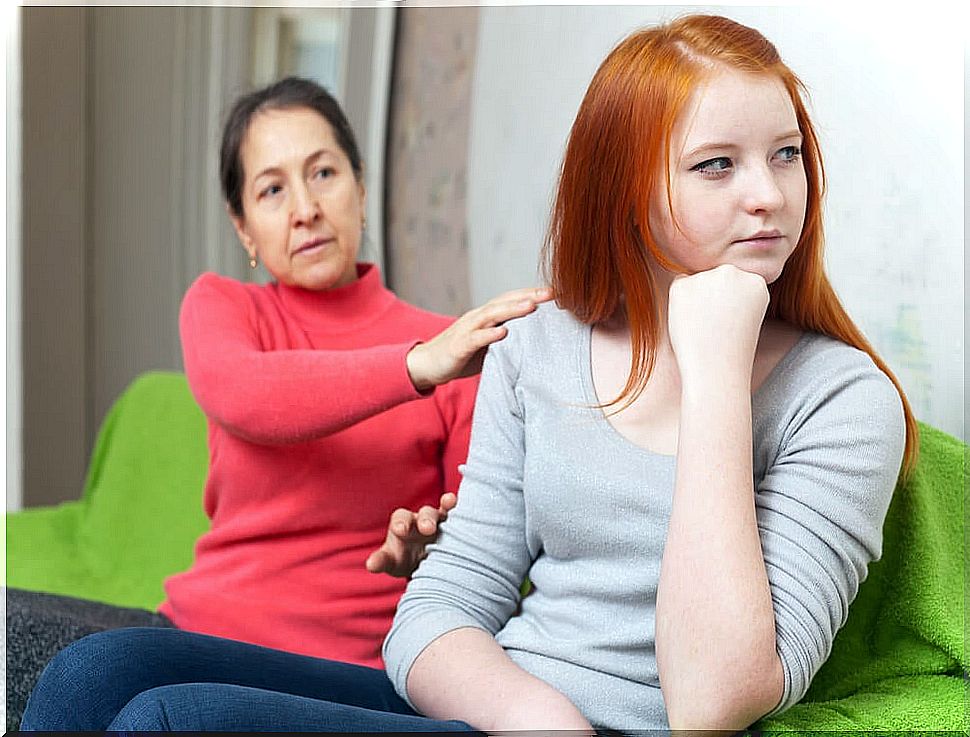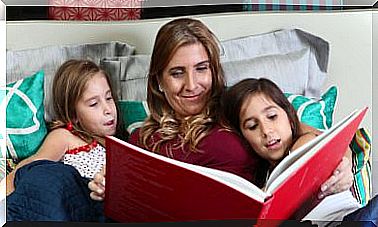Communicate With Your Teenager With Three Magic Words

Communicating with your teenager can be tricky. When talking to him, asking him what he plans to do instead of telling him what you think he should do will help open up a whole new world of communication and respect. Communicating with teens can be difficult, but these three magic words, “What do you want to do?”, Can open many doors.
Communicate with your teen with three magic words: “What do you want to do?”
These three words can fix the relationship forever. Teens are old enough to know what to do and they need your help to figure out how to handle a situation. But they also want to be in control and want to be able to choose between different alternatives.
The three magic words, “What do you want to do?”, Transmit respect, because with them you pass the responsibility to your child and help him develop good planning skills; They are three very powerful words, much more than you can imagine. C hen start using them, everything will change among you better.
You may be reluctant at first, thinking that your child is disorganized and that you always have to remind him of his responsibilities. It is a good idea to learn from your mistakes.

Typically, teens want to do things when they feel like doing it and not when you want them to. It is not necessary to argue, they simply must know that there are deadlines that must be met and that, if they do not meet, there will be consequences.
In addition to using the three magic words, it is a good idea to maintain other communication strategies. In this way, you can ensure that the relationship with your children is fluid and that you can convey your messages more efficiently.
Have an open conversation along with the three magic words
If you put your child on the defensive, he will hide the truth or lie because he does not want to disappoint you, but he also wants to do what he thinks is best in his circumstances. It is important to maintain mutual respect to keep the lines of communication open at all times. If you want to stay calm in conversation, follow these tips:
Empathy first and consequences next
Looking at the situation from your child’s perspective will help guide him to make better decisions in the future. The next time your child comes home with an unacceptable grade, for example, try saying something like, “Give me a hug.” “Is there anything I can do to help?” “Is there anything we can do to improve the results?”
Take time out to communicate with your teen
You don’t have to respond immediately when you are angry or upset ; give yourself time to cool off. In the heat of the moment, it’s okay to say, “You didn’t set the table even though you knew it was your responsibility. We will take care of this after I have had time to calm down. “
Don’t yell and use the three magic words to communicate with your teenager
React with empathy first before presenting the consequence. In some conflicting circumstances, the natural response is to get angry, but anger only expresses your feelings and lets them come out like a kettle pouring out. You don’t actually communicate anything. You should step back and look from your child’s point of view. Say the three magic words.

Do not scold
Scolding comes from wanting your child not to make mistakes. But childhood and adolescence are all about learning through trial and error. Keeping a room untidy, not studying for a test, and forgetting to do chores are non-life threatening mistakes that children can make and then face the consequences.
Annoyance stresses both of you and doesn’t teach you the value of taking your responsibilities more seriously. A reminder is enough. If you always scold your kids about something, they will always expect you to. Remember one thing only once and, if they do not comply, apply the consequences.
Don’t be a problem solver
Your job as a parent is to teach your child to make good decisions and think independently. You don’t need to have all the answers and you don’t need good answers either. You just need to start a conversation on dry land. For example, you can say something like, “Let me think about it and then we’ll see what we can do together.” The most important thing is that your children reason.
When you are about to have a disagreement with your teenager, take some time to say how you will react before responding. Many times, the answer is fundamental; Find out how you would like to be treated and do it the same way. Also, use the three magic words: ” What do you want to do” ; or also “How do you want to do it?” .










